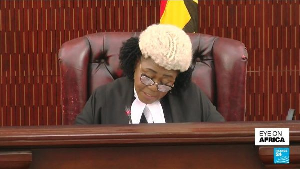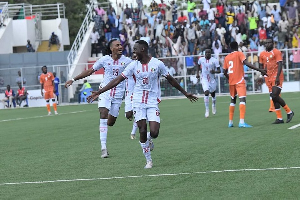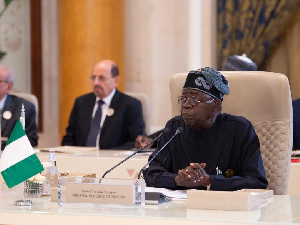Indigenous banks with strong balance sheets and untainted by the collapse of the seven (7) poorly-governed banks are strong, innovative and ready to compete, Governor of the central bank, Dr. Ernest Addison, has said.
“A few institutions in the sector have come under stress; in both banks and specialised deposit taking institutions. What is common among these institutions are unsustainable business models and poor corporate governance practices which have led to the misapplication of depositors’ funds and pushed them to the threshold of insolvency with liquidity shortages.
“The developments are not a reflection of the industry. We have very strong banks and Savings and Loans that are doing well,” Dr. Addison said.
Dr. Addison’s comments are backed by a Moody’s Investors Service report released on October 1, 2018, which shows that Ghana’s operating environment is more supportive for the banking business; and the country’s projected GDP growth of 7.6 percent in 2019 will serve to benefit local banks.
“Ghana’s economy is more diversified and business-friendly. The country has a long record of political stability. On-going credit positive reforms in Ghana, such as the increase in capital required for banks to keep and directives on corporate governance and problem loans classification and provisioning, will also enhance the banking industry’s resilience,” noted the Moody’s report that serves to guide investors.
There are currently 31 universal banks in the country, of which 12 are indigenous institutions with good corporate governance structures and practices, and financially sound to provide for needs of the banking public.
The central bank, as part of measures to reform the banking sector and ensure deposits and investments of the public are safe, revoked the licences of Capital and UT banks.
The two banks were taken over by GCB Bank in a Purchase and Assumption (P&A) arrangement approved by the central bank, while deposits and some selected assets of Sovereign, Beige, Construction, Royal and Unibank were transferred to a newly-created entity – the Consolidated Bank Ghana (CBG) — and an additional GH¢450million used to capitalise the CBG.
Ongoing merger talks
Some banks in the country have started merger talks as they seek to strengthen their balance sheets and create strong entities that can compete favourably.
The merger talks between Sahel Sahara and Omni Banks are expected to be completed by end of this month.
A future merger between these two banks into one entity will see the new entity meet the central bank’s new capital requirement of GH¢400million before the December deadline.
Business News of Monday, 8 October 2018
Source: thebftonline.com

















